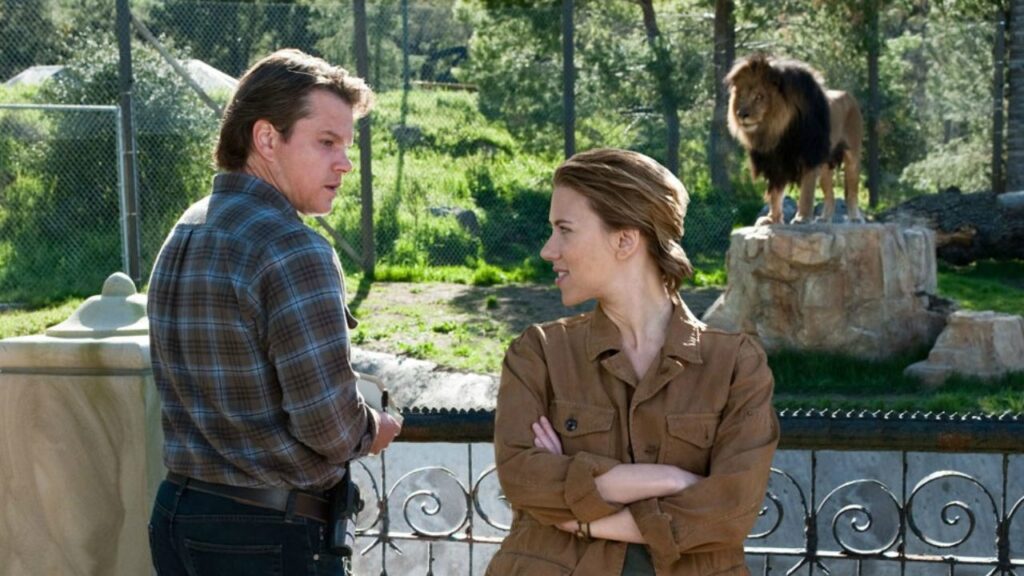
Cameron Crowe’s best work is all tied to his own experiences coming of age. Almost Famous (2000) and Fast Times At Ridgemont High (1982) are both literal examinations of his own adolescence from different perspectives in his own adult life. Are these two films as good as they are because Cameron Crowe never really got beyond that moment or does Crowe just have tremendous empathy for teenagers?
We Bought A Zoo (2011) isn’t about youth, it isn’t about rock music, and doesn’t seem to really fit with Crowe’s oeuvre at first glance. But themes of grief and family had gradually been becoming greater themes in Crowe’s work, evolving from Say Anything…(1989) to Elizabethtown (2005). We Bought A Zoo fits nicely between these two earlier works in terms of what period of grief is being explored. Elizabethtown deals explicitly with loss, We Bought A Zoo tackles themes of acceptance, and Say Anything… looks at the repercussions of loss long after the tragedy occurred. Interestingly, We Bought A Zoo is the only one of these thematically linked films that doesn’t deal with the passing of a parent.
We Bought A Zoo is an adaptation of Benjamin Mee’s memoir of the same name about a widowed father of two who uproots his family and moves them to a zoo that they will own and co-operate. This experience will, inevitably, allow the family to accept the death of the mother/wife while learning something about themselves along the way. The strict adherence to Hallmark movie dramatic beats inhibits any solicitation of a genuine emotional response as if Crowe were endeavoring to make the ultimate “cookie-cutter” feel-good picture.
Matt Damon, who plays Benjamin Mee, is even given a love interest in the form of his feisty head zookeeper Kelly Foster (Scarlett Johansson). From the beginning Crowe frames Foster as the surrogate mother to Mee’s kids, so it’s only natural by the third act that she reveals that she’s been in love with Mee since the get-go. This isn’t incredible, but it is worth noting that Crowe works hard to subtly establish that Foster is much younger than Mee and that it is her youth that is largely responsible for making her desirable, not the fact that she seems to be a super zookeeper who can look after any animal known to man.
Issues of narrative structure and cliche aside, what ultimately hurts We Bought A Zoo the most is the fact that Johansson and Damon have absolutely no chemistry. Damon comes off as his usual “creepy horny uncle” while Johansson enjoys the best scenes in the film that are shared either with a dying tiger or with the Mee children. When Damon and Johansson have a romantic scene Damon plays it like a middle aged man asking a teenager in the mall food court for a lap dance while Johansson earnestly attempts to humanize both of their underdeveloped characters with some emotional heavy lifting.
A huge factor in why I find Crowe’s comedies about coming of age so much more successful than his other works is that he cannot get a subtle or nuanced performance from an actor. Watching We Bought A Zoo is like watching a film where there’s a new director for each shot change. Absent is any form of dramatic continuity or growth, leaving behind only bold gestures that eradicate all sense of subtext.
